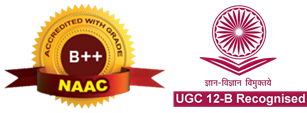The University has always believed in the process of reforms in every sphere of its activity and till now even the basic shapes of various sub-institutions and processes have changed because reforms were introduced from time to time. The University gets the inputs for these reforms from various channels; say its own experience, suggestions received from the other stakeholders (learners, LSCs, RCs, other academicians and public), directions received from the regulatory bodies and learning imbibed from the other leading institutions like IGNOU and other Open Universities. Even the external bodies like Commonwealth of Learning (COL) continue to give inputs through CEMCA which operates under COL in India. Under the directions of COL self-review exercise was carried on in the University in May 2012. This exercise aimed at reviewing the existing functions and carrying out an analysis of self review to ensure improvement and reforms in the institutional processes of the University. This process was carried out under the active mentoring provided by Professor V.S. Prasad, the leading expert in the area of distance education in India. It dwelt upon the following areas:
- Communication.
- Needs orientation.
- Engagement.
- Innovation and creativity.
- Capacity building, and
- Quality management.
System of feedback from different stakeholders has been in place in the University since a long time and these feedbacks are carefully analyzed forming the basis for reforms in the institutional processes. Recently, the University has collected feedback from learners, academicians of the University, external unit writers and subject experts of BOS etc.
The impact analysis of this feedback has been carried out and it is given as web-link (http://www.uou.ac.in/impact-analysis) to this write up. Some of the findings of this impact analysis are enumerated as below:
- Majority of respondents agreed that the Induction program conducted by the Learner Support Centres were found to be useful.
- Majority of respondents agreed that the study material for the program was comprehensive and easy to understand with useful illustrations of concepts and examples.
- Majority of respondents agreed that the assignments were very useful in grasping the content given in the Study Material.
- Majority of the respondents agreed that the academic counseling provided at the Learner Support Centres facilitated in the understanding of study material.
- Majority of the respondents agreed that the University adheres to the schedule of admissions and term end examinations.
- Majority of the respondents agreed that the learner centric methods used by the University to promote learning, enhanced problem solving skills, employability skills, life skills make them ready for the world of work.
- Majority of respondents agreed that the term-end examination was conducted fairly and the sanctity of the examination was maintained.
- Majority of respondents agreed that the academic programs have all the requisite academic content to achieve the expected competency.
- Majority of respondents agreed that the grievance redressal mechanism of the University was effective.
- Majority of respondents agreed that the University website/ mobile app gave useful information.
The continuous process of reforms is reflected in the following developments over a period of time:
- Syllabus of different courses of study has been continuously updated and reformed.
- Many research papers have been published by the teachers of the University to analyze the existing status of ODL and suggesting improvements therein.
- Industry-Academia interface has given many useful inputs for improvement and the University has been largely benefitted. It, in turn, resulted in ‘on the floor training’ of our learners, decent stipends were paid to them and many learners got appointments as well.
- Grievance Redressal mechanism has been greatly improved and it has resulted in increased learner-satisfaction. The grievances are lodged on the UGC’s ‘Online Students Grievance Redressal Portal’ also and the University ensures a quick resolution of these grievances as well. Till now 16 grievances were lodged and out of these 16, 14 grievances have been resolved.
- Examination system of the University has been thoroughly overhauled on the basis of extensive brainstorming with regard to improvement of the system. As a result, at present the University issues online admit cards, conducts examinations in a record time of 28 days, declares results within 45 days, issues the mark sheets online for the first and the second years at the graduate level and transcript is issued for the examination of the final year of the concerned degree. Further the degrees are being uploaded on the NAD which is not only a mandatory requirement but it also ensures safe availability of its copy to the learners and the learners may direct a prospective employer to refer to the NAD to verify his/ her degree.
- Increasing use of social media has been ensured by the University and it has its YouTube channel, Facebook account, Watsapp group and all the departments have their individual blogs.
- University has created its OER policy and it has been approved in various statutory bodies of the University.
- The urge for continuous improvement led us to create MOOCS and we were able to create two MOOCS till now. One of the MOOCS on Cyber Security has become internationally acceptable and it is being used in the countries outside India.
The above mentioned improvements are only the major highlights based on the illustrious journey of the University over these years but the truth is that this University has continuously improved and moved forward in the area of ODL.



